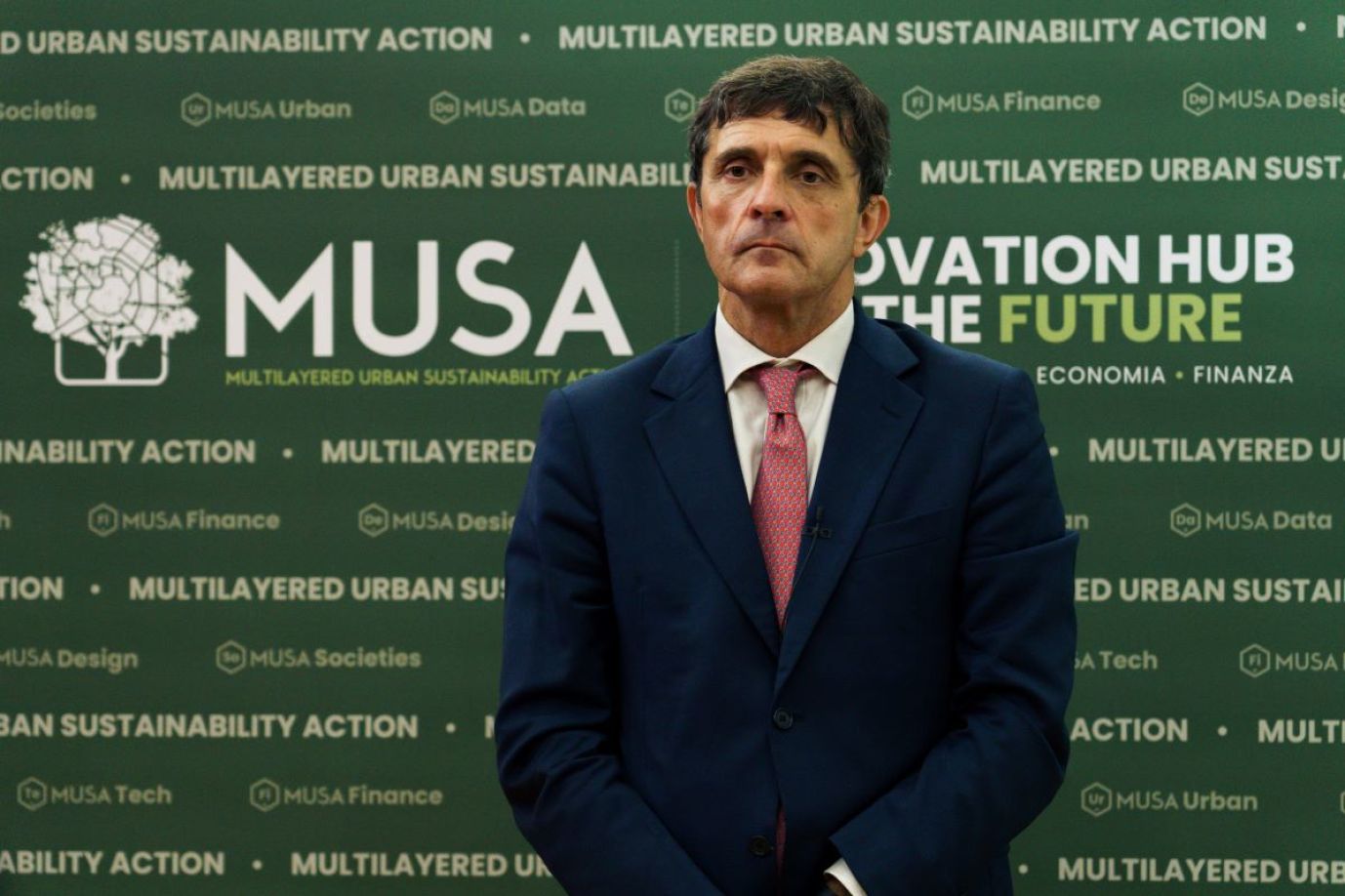MUSA (Multilayered Urban Sustainability Action) is the name of the grand plan on which Bocconi, Bicocca, Università Statale and Politecnico are working synergistically. Among the proposals are Artificial Intelligence, telemedicine and social inclusion
In the country’s main metropolitan area, Milan, which is planning the sustainability of its future, the MUSA project has its say, deploying an ultra-innovative holistic approach and the skills and creativity of very young researchers. The objective? To create chains of research, innovation and technology transfer that can spread from Milan to the whole of the Italy of the future, commented University and Research Minister Maria Cristina Messa, who highlighted the public-private exchanges pioneered by the project in addition to the contribution of many young talents.
MUSA, a sustainable land regeneration project
MUSA (Multilayered Urban Sustainability Action) is an Ecosystem of Innovation that has its first strong point in the collaboration between four major Milanese universities – the University of Milan-Bicocca, the Bocconi University, the Polytechnic and the University of Milan -, is financed by the Ministry of University and Research through an investment of 116 million euro from PNRR funds, and has already presented to the city some of the research activities carried out, such as the algorithm that helps identify aquifers hidden in the ground, the dashboard that enables telemedicine assistance, the desealing project to utilise rainwater in agriculture, and the artificial intelligence software that monitors hate speech on the web.
“The most valuable aspect of MUSA is the ambition to build an integrated system that puts four prestigious universities, some twenty very relevant partners from the world of business, local authorities and foundations to work on the sustainable regeneration of the territory in environmental, economic and social terms, in a new model of public-private collaboration in which the active involvement of part of the citizenship is also envisaged,” says Vittorio Biondi, General Manager and Programme Manager of MUSA Scarl. Academia, industry, local authorities and civil society are called upon to design a new vision of development and a positive medium- to long-term impact on the territory. “This is a genuine quantum leap compared to the dialogue or occasional collaboration practised to date between partners of this scale, reinforced by the aspiration of having the actors in this synergy cooperate on a permanent basis in the future as well,” Biondi continues.
Starting with university campuses
“MUSA’s urban regeneration started from university campuses, which will be less concrete and will benefit from rainwater reuse systems: we now hope that the experience in the universities will represent the start of a regeneration process in other areas of the territory”. Specifically, on 12 June, the energy transition process of the University of Milan Bicocca, which is among other things the proposing body of the project, was launched. It will use geothermal and photovoltaic energy to become a zero-emission campus.
Today, 979 researchers are working on the MUSA pilot projects, 43% of whom are women. There are 194 new hires and of these 56% are women, with an average age of 32. “The ambition is to build interdisciplinary responses to the challenges of sustainability, through pilot projects that can be replicated in other contexts: economists, engineers, computer scientists, lawyers, psychologists, geologists, botanists… Working together with very different disciplinary profiles is another strong point of the project, which is not at all taken for granted, given that the world of research often works on vertical specialisations and trajectories. Moreover, I see that in the analyses carried out there is always a strong focus on what is happening in other contexts: we are working to ensure that the project is also an opportunity to forge partnerships with other research groups’.
Roads, waste management, digital platforms
Designing a new development model that is able to build growth and sustainability, MUSA is designing new models of roadability and waste management systems, more circular production processes in strategic sectors such as fashion, design and wellness, smarter renewable energy solutions, digital platforms for land management, for the collection and use of biomedical data, fintech solutions and learning tools to support decision-making in the financial area.
There is a strong focus on social inclusion, on combating material and cultural inequalities, on overcoming the gender gap and technological gaps, on promoting individual and community civic engagement, and on projects focusing on culture, art and science to foster social innovation. “Through the Human Hall hub, 18 projects have already been launched targeting different at-risk segments of the population, from women victims of violence to foreigners, to intercept and monitor





